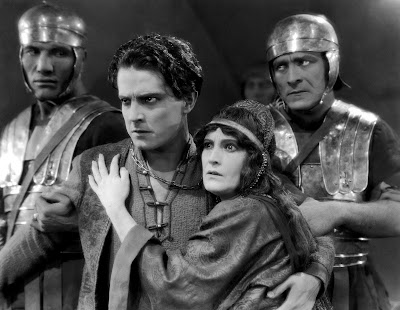Today's forecast: cloudy with rain possible at any time. In other words, perfect movie weather!
So come on over the Town Hall Theatre in Wilton, N.H., where this afternoon we're finishing up a summer-long series of silent Westerns with a dose of comedy.
Today's main attraction: 'Go West' (1925), Buster Keaton's comic send-up of the genre. If you've never seen this picture with an audience, you've never really seen it.
Also, we'll run what's left of 'Womanhandled' (1925), a Richard Dix comedy that survives only partially but I think holds up really well. Come and we'll find out together.
The show starts at 2 p.m. See you there!
* * *
Contact Jeff Rapsis • (603) 236-9237 • jeffrapsis@gmail.com
'Go West' with Buster Keaton at Town Hall Theatre on Sunday, Aug. 29
Classic silent film comedy masterpiece to be screened with live musical accompaniment
WILTON, N.H.—He never smiled on camera, earning him the nickname of "the Great Stone Face." But Buster Keaton's comedies rocked Hollywood's silent era with laughter throughout the 1920s.
See for yourself with a screening of 'Go West' (1925), one of Keaton's landmark features, on Sunday, Aug. 29 at 2 p.m. at the Town Hall Theatre, 40 Main St., Wilton, N.H.
The screening is free and open to the public; a donation of $10 per person is suggested to support the Town Hall Theatre's silent film programming.
The program will feature live music by silent film accompanist Jeff Rapsis.
'Go West' marks the finale of the Town Hall Theatre's summer-long salute to silent film westerns.
"After a season filled with intense dramas, we figured we'd finish our western series with something lighter— a comedy," Rapsis said.
The show will also include portions of 'Womanhandled' (1925), a partially lost comedy Western feature starring Richard Dix.
In 'Go West,' Buster heads out to ranch country, where the stone-faced comedian encounters romance in a highly unusual way.
'Go West' was an unusual film for Keaton. With its portrayal of a down-and-out wanderer who becomes a reluctant hero, 'Go West' could have been a vehicle for Charlie Chaplin’s Little Tramp.
The film was praised by critics and did well at the box office, but today is lesser known than Keaton classics such as 'The Navigator' (1924) and 'The General' (1926).
Co-starring in 'Go West' is a mourn-faced cow named Brown Eyes, with whom Keaton worked extensively prior to the filming.
Keaton's female co-star is actress Kathleen Myers. Joe Keaton, the comedian's father and a popular vaudeville performer, appears briefly in a barbershop scene.
Much of 'Go West' was shot on location in Kingman, Ariz., during the summer of 1925, in temperatures approaching 120 degrees.
"These films are audience favorites, and people continue to be surprised at how engrossing and exhilarating they can be when shown as they were intended: in a theater, and with live music," said Rapsis, who accompanies more than 100 screenings each year at venues around the nation.
Rapsis improvises live scores for silent films using a digital synthesizer to recreate the texture of the full orchestra.
"It's kind of a high wire act," Rapsis said. "But for me, the energy of live performance is an essential part of the silent film experience."
‘Go West' (1925) starring Buster Keaton will be shown with live music on Sunday, Aug. 29 at 2 p.m. at the Town Hall Theatre, 40 Main St., Wilton, N.H.
The screening is free and open to the public; a donation of $10 per person is suggested to support the Town Hall Theatre's silent film programming.
For more information, visit www.wiltontownhalltheatre.com or call (603) 654-3456. For more about the music, visit www.jeffrapsis.com.

















